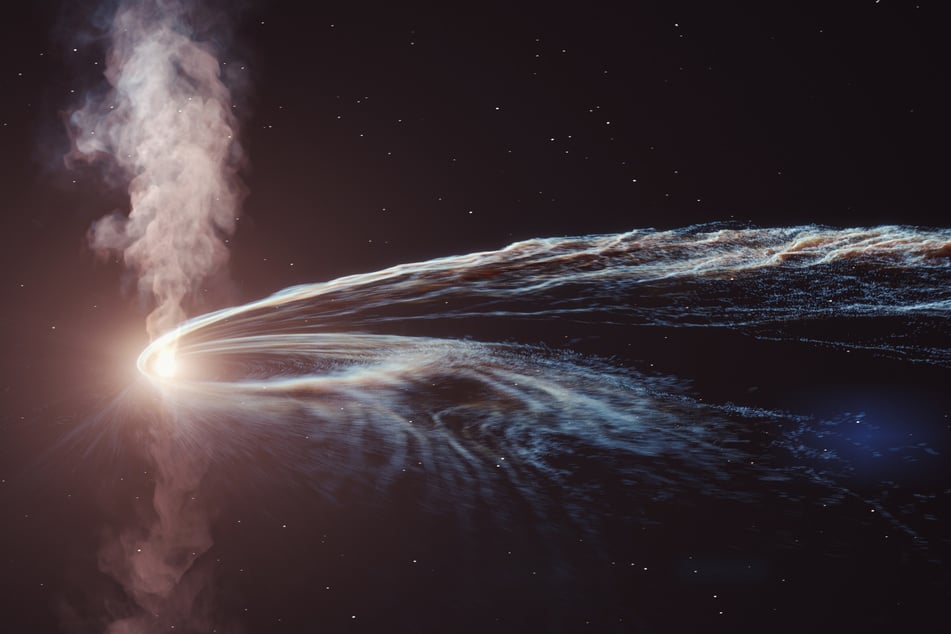Black hole keeps "burping" out a star and leaves scientists baffled
Socorro, New Mexico - Scientists have discovered a black hole that has been "burping" energy from a star it "swallowed" over three years ago.

In a galaxy far, far away, some very strange things are going on.
Astronomers made a unique discovery while recently observing two dozen black holes in space using a powerful telescope at the Very Large Array facility, and have published a paper on the finding.
Yvette Cendes, an astronomer and lead author of the report, described the event to NPR as "super unusual," also adding, "We've never really seen this before to this degree."
In October 2018, astronomers witnessed a small star get torn apart and encompassed by the hole, named AT2018hyz, which is located in a galaxy 665 million light years away from Earth.
Typically, when a star comes close enough to a black hole, it's shredded into thin strips, "swallowed," and ejected – or "burped" out – a short time later. A star, or any matter, can also reach the hole's event horizon – the point in which nothing can escape it.
But Cendes said, "this material never crossed that boundary, according to our best estimates."
In addition, the energy being emitted seems like it's being "belched out" five times faster than is expected.
While astronomers are struggling to figure out what has caused the event, Cendes says the discovery may help open "a new dimension in our understanding of physics and what is possible."
"They definitely need to get to work and tell me what's going on because I'm also very curious," the astronomer also joked.
Cover photo: Screenshot / Twitter / @CenterForAstro